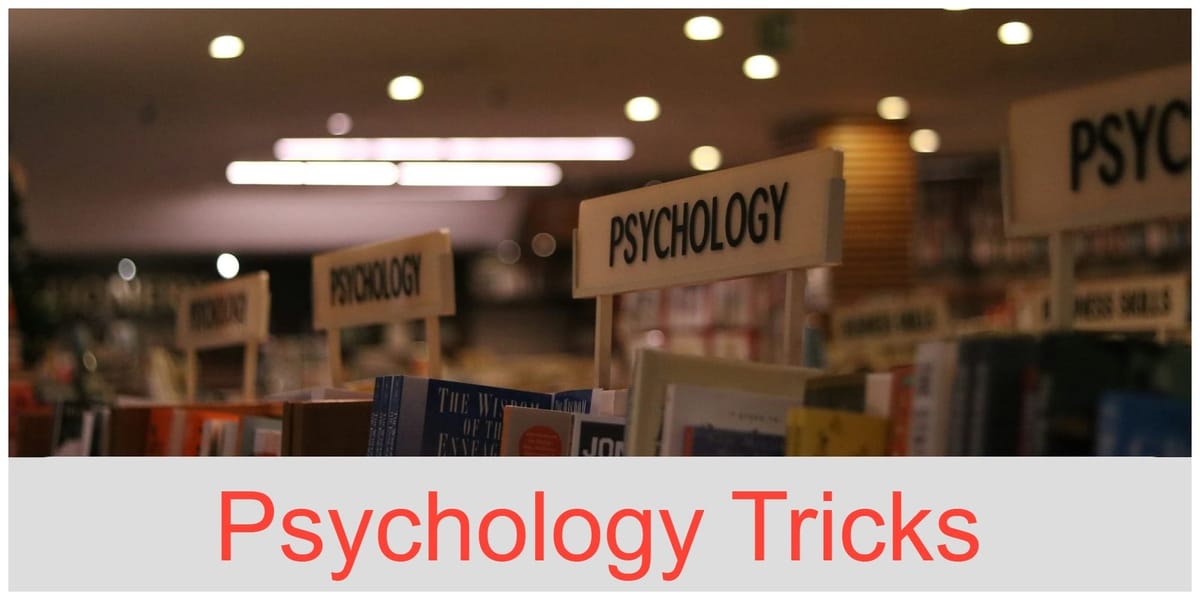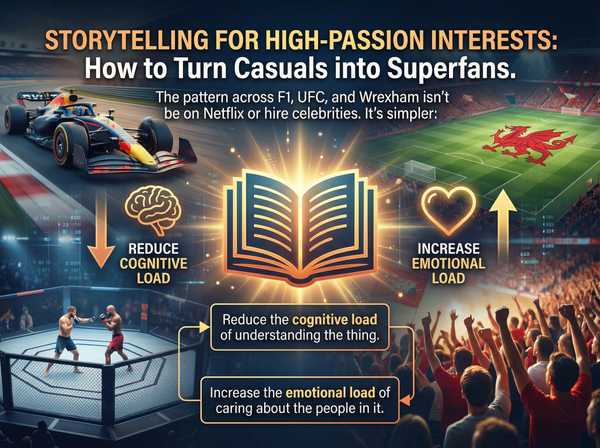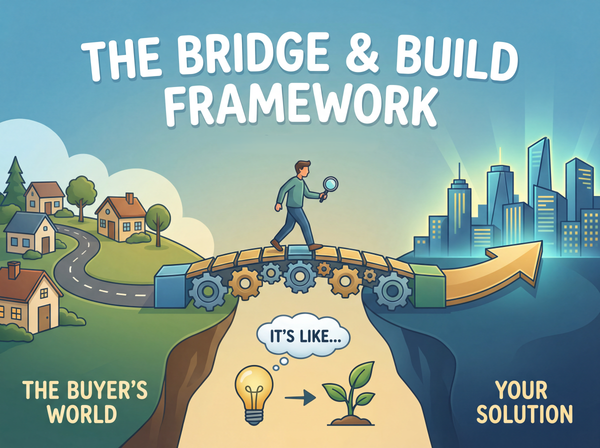9 Psychology Tricks for Sales Closers: Proven Sales Closing Techniques That Work

What if you could ethically nudge prospects toward a yes by tapping into how their brains actually work? Sales psychology offers powerful, science-backed strategies that not only help you close more deals but also build lasting trust with clients.
From leveraging loss aversion to harnessing the power of autonomy, these nine psychology tricks for sales closers will sharpen your persuasion skills and boost your closing rate.
1. Labelling: Turn Prospects into Heroes
How It Works: Assign a positive trait, and people will subconsciously strive to live up to it.
Example: I can tell you’re the type of leader who prioritizes long-term growth over quick fixes.
Why It Works: Labels trigger the halo effect. Once someone accepts a positive identity, they align their actions to match it.
Pro Tip: Use labels early to frame the conversation: You strike me as someone who values results. Is that fair to say?
2. Loss Aversion: Make Delay Feel Costly
The Science: According to Kahneman & Tversky, losses hurt twice as much as gains feel good.
How to Use It:
- Highlight what they’ll lose by delaying: Every month you wait, your team wastes 50 hours on manual tasks.
- Pair with urgency: The last spot in our Q4 cohort closes Friday.
Stat: Phrases like Don’t miss out convert 28% better than Get started today.
3. Consistency & Micro-Commitments: The Yes Ladder
How It Works: Small agreements pave the way for bigger ones.
Script:
- Start with obvious truths: Would you agree that saving time boosts profitability?
- Gradually escalate: If I showed you how to reclaim 10 hours/week, would that interest you?
Why It Works: People feel internally pressured to act consistently with prior commitments.
4. Price Anchoring: Make Your Offer Feel Like a Steal
The Hack: Set a high reference point first.
Example:
- Most agencies charge $20k/month for this service. We do it for $7k and include [bonus].
- Stack value: For $997, you’ll get the course + 1:1 coaching ($2k value).
Pro Tip: Acknowledge price before stating it: This is an investment, but let me show you why it’s worth it.
5. Reciprocity: Give to Get (But Make It Personal)
Rule: Generic freebies don’t work. Tailor your gift to their pain points.
Action Plan:
- Pre-call: Send a customized report on their biggest challenge.
- Post-call: Share a template addressing their specific need.
Case Study: A SaaS rep sent a prospect a personalized demo video. Conversion rates jumped 40%.
6. Social Proof: The Everyone’s Doing It Effect
Layered Approach:
- Broad: 90% of clients see ROI in 30 days.
- Niche: Here’s how a [specific industry] client doubled revenue.
- Urgent: Since we last spoke, 3 teams like yours signed up.
Power Phrase: You’re not the first to feel unsure. Here’s what [similar client] did…
7. Scarcity: Limited Spots, Not Just Time
Beyond, Offer Ends Soon:
- Position exclusivity: We only take 5 clients per quarter to ensure white-glove service.
- Highlight uniqueness: This strategy works best for innovators, like you.
Why It Works: Scarcity triggers FOMO and elevates perceived value.
8. Problem Amplification: Make Pain Unignorable
How to Use It: Ask prospects to project their pain forward:
If this problem continues for another year, what will it cost your team?
Script:
- You mentioned [problem]. How has that held you back?
- What happens if nothing changes?
Result: They’ll ask for your solution to escape the amplified pain.
9. Autonomy Principle: Let Them Choose You
Key Insight: People hate feeling sold to - they love buying.
How to Use It:
- Empower their decision: You know your business best. Based on what we’ve discussed, does this feel like the right path?
- Use open-ended questions: What steps would you like to take next?
Pro Tip: Replace You should… with Could we…? to preserve their sense of control.
Putting It All Together: Sales Psychology Example
Scenario: Selling a $5k marketing audit.
- Label: You strike me as a CEO who values data-driven decisions.
- Amplify Pain: How much revenue have inconsistent campaigns cost you this year?
- Loss Aversion: Every month without a clear strategy, you’re losing 100+ leads.
- Social Proof: One client used this audit to cut CAC by 60%.
- Autonomy: Based on these numbers, does moving forward make sense for you?
Result: Prospect feels ownership over the decision, not pressure.
FAQs on Sales Psychology & Closing Techniques
Q: What is the most powerful psychology trick for closing sales?
A: Loss aversion is one of the strongest, since people are more motivated to avoid losses than to pursue gains.
Q: Are these tactics ethical?
A: Yes, when used to align with your prospect’s goals and provide real value, these techniques foster trust instead of manipulation.
Q: Do sales psychology tricks work in B2B sales?
A: Absolutely. While decision-making cycles are longer in B2B, principles like social proof, reciprocity, and problem amplification are highly effective.
Ethical Persuasion Wins Loyalty
These sales psychology techniques aren’t about tricking people, they’re about aligning with how the brain naturally operates.
By focusing on your prospect’s fears, desires, and need for autonomy, you’ll close more deals and build long-term advocates.
Pick one tactic to test this week. Notice how prospects lean into the conversation instead of resisting it.
Keep Crushing!
- Sales Guy


